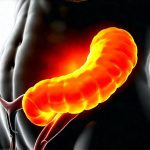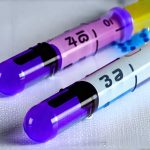Irritable Bowel Syndrome (IBS) is a frustratingly common gastrointestinal disorder characterized by abdominal pain, bloating, gas, diarrhea, and constipation – often in fluctuating patterns. Millions struggle with these symptoms, seeking relief through dietary changes, stress management techniques, and various medications. However, what many don’t realize is that the symptoms of IBS can be remarkably similar to those caused by underlying enzyme deficiencies. This overlap creates a diagnostic challenge, as individuals may initially be diagnosed with IBS when the root cause lies in an inability to properly digest certain foods due to missing or insufficient enzymes. The consequence? Treatment focuses on managing symptoms rather than addressing the true problem, leading to ongoing discomfort and potentially unnecessary restrictions.
The digestive process is complex, relying on a cascade of enzymatic reactions to break down food into absorbable nutrients. When an enzyme is deficient, undigested food particles can ferment in the gut, triggering inflammation, gas production, and altered bowel habits – mirroring many IBS symptoms. It’s crucial to understand that enzyme deficiencies aren’t always genetic; they can develop due to factors like aging, pancreatic insufficiency, or certain medical conditions. Dismissing this possibility during initial diagnosis may result in a prolonged journey of misdiagnosis and ineffective treatment strategies, leaving individuals feeling unheard and increasingly hopeless about finding lasting relief.
The Role of Lactase Deficiency & Carbohydrate Malabsorption
Lactase is the enzyme responsible for breaking down lactose, the sugar found in dairy products. A lactase deficiency, also known as lactose intolerance, affects a significant portion of the population, particularly those of non-European descent. When lactose isn’t properly digested, it travels to the colon where bacteria ferment it, producing gas and causing bloating, diarrhea, abdominal cramps – all hallmark IBS symptoms. This is often misdiagnosed as IBS-D (diarrhea-predominant IBS) because the rapid onset of digestive distress closely resembles a flare-up. The key difference lies in the trigger; while IBS-D can be triggered by stress or certain foods generally, lactose intolerance specifically relates to dairy consumption.
Beyond lactose, other carbohydrate malabsorption issues can also mimic IBS. Sucrose-isomaltose deficiency (SID) results from insufficient enzymes needed to break down sucrose (table sugar) and isomaltose. Similarly, fructose malabsorption occurs when the small intestine struggles to absorb fructose, a sugar found in fruits, honey, and high-fructose corn syrup. These undigested sugars lead to similar symptoms: bloating, gas, abdominal pain, and altered bowel movements. Often, individuals with these deficiencies unknowingly reduce their overall diet, fearing common IBS trigger foods, when the problem isn’t broad food sensitivities but specific carbohydrate intolerance.
The diagnostic process for these deficiencies is relatively straightforward. Hydrogen breath tests are commonly used to assess lactose, fructose, and sucrose malabsorption. These tests measure hydrogen levels in exhaled breath after consuming a specified amount of sugar; elevated hydrogen indicates bacterial fermentation due to undigested carbohydrates. Dietary elimination trials – temporarily removing the offending carbohydrate from the diet and observing symptom improvement – also provide valuable insights. Identifying these deficiencies allows for targeted dietary adjustments or enzyme supplementation, offering significant relief without the restrictive diets often associated with IBS management.
Pancreatic Insufficiency & Fat Malabsorption
Pancreatic insufficiency occurs when the pancreas doesn’t produce enough digestive enzymes, particularly lipase (for fat digestion), protease (for protein digestion), and amylase (for carbohydrate digestion). This can be caused by chronic pancreatitis, cystic fibrosis, pancreatic cancer, or even simply aging. Without sufficient lipase, fats aren’t properly broken down and absorbed, leading to steatorrhea – the presence of excessive fat in stool, which appears pale, bulky, foul-smelling, and difficult to flush. This is a clear sign of malabsorption.
The consequences extend beyond unpleasant bowel movements. Fat malabsorption can lead to deficiencies in fat-soluble vitamins (A, D, E, K), contributing to fatigue, bone weakness, and other health problems. More importantly from an IBS perspective, the undigested fats cause significant bloating, abdominal cramping, diarrhea, and a feeling of fullness – mirroring many IBS symptoms, particularly those associated with IBS-D or mixed-type IBS. The resulting inflammation in the gut can also contribute to ongoing discomfort.
Diagnosing pancreatic insufficiency typically involves fecal elastase testing, which measures levels of an enzyme secreted by the pancreas; low levels indicate insufficient pancreatic function. Imaging tests like CT scans and MRI may be used to assess the pancreas itself for structural abnormalities. Treatment usually involves Pancreatic Enzyme Replacement Therapy (PERT), supplementing with lipase, protease, and amylase enzymes taken with meals to aid digestion. This can dramatically improve nutrient absorption and alleviate gastrointestinal symptoms, often providing a solution where IBS management has failed.
Small Intestinal Bacterial Overgrowth (SIBO) & Enzymatic Support
While not strictly an enzyme deficiency itself, Small Intestinal Bacterial Overgrowth (SIBO) frequently exacerbates the effects of enzymatic deficiencies and can mimic their symptoms powerfully. SIBO occurs when excessive bacteria colonize the small intestine – where bacterial numbers should be relatively low – leading to fermentation of undigested carbohydrates. This fermentation produces gas, causing bloating, abdominal pain, and altered bowel habits. The presence of these bacteria also interferes with normal digestion and nutrient absorption, potentially worsening existing enzyme deficiencies.
Individuals with underlying enzymatic deficiencies are more susceptible to SIBO because undigested food provides a readily available energy source for the overgrown bacteria. For example, someone with lactase deficiency will have unabsorbed lactose reaching the colon (and small intestine), fueling bacterial growth. This creates a vicious cycle: enzyme deficiency leads to malabsorption, which promotes SIBO, which further disrupts digestion and exacerbates symptoms. The challenge is that SIBO testing – typically through breath tests measuring hydrogen and methane levels – can be unreliable and often requires specialized interpretation.
Addressing SIBO often involves dietary changes (like a low-FODMAP diet), antibiotic treatment to reduce bacterial overgrowth, and prokinetic agents to improve gut motility. However, simply treating the SIBO without addressing the underlying enzymatic deficiency is unlikely to provide long-term relief. Combining SIBO protocols with targeted enzyme supplementation can significantly improve digestive function and prevent recurrence of symptoms by ensuring better food breakdown and reducing fuel for bacterial overgrowth.
It’s important to reiterate that this information is not intended as a substitute for professional medical advice, diagnosis, or treatment. If you suspect an enzyme deficiency or are experiencing persistent gastrointestinal symptoms, consulting with a qualified healthcare provider – ideally one familiar with functional medicine or gastroenterology – is essential for accurate diagnosis and personalized management strategies.


















